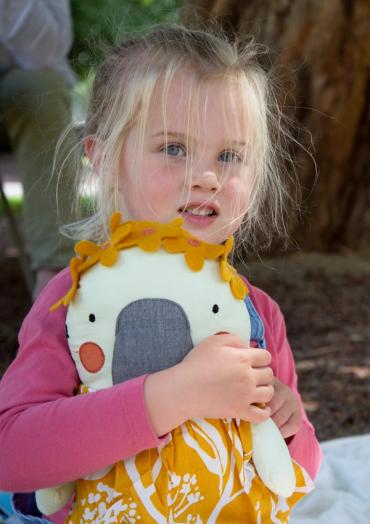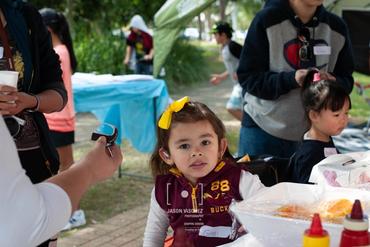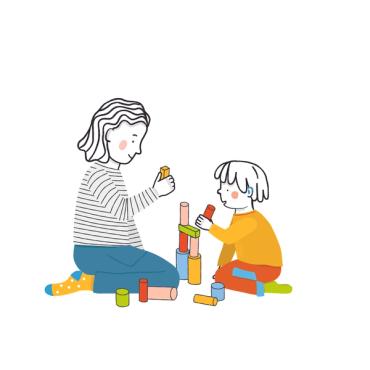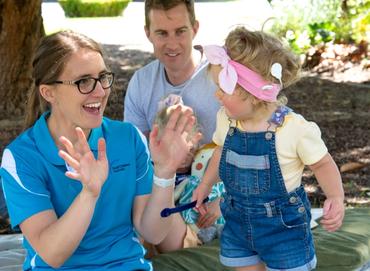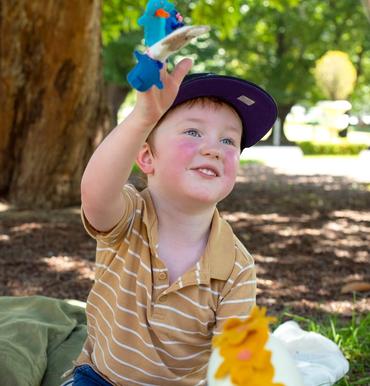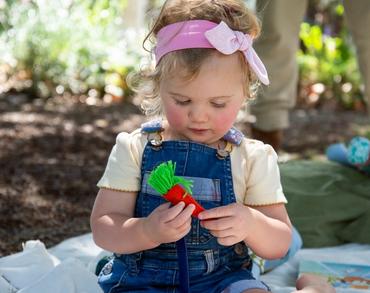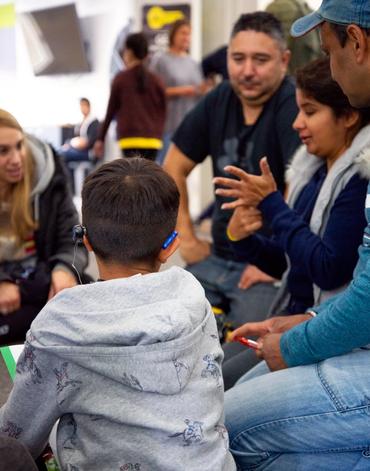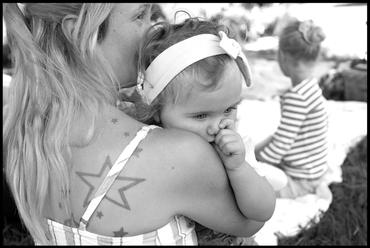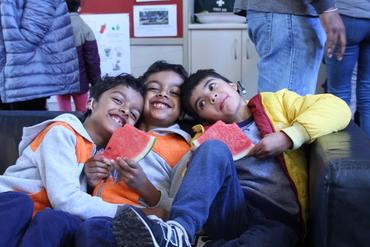Content Finder
There is a great deal of information available on the internet about deafness. We have collected a range of the key subjects parents told us were important to them - and you can check these out right here. Just use the drop-down filters to help focus on what interests you and we will feed in the relevant content.
About Platypus Playhouse
Check out the range of Platypus Playhouse resources- a range of tactile and visually splendid language building tools.
Early childhood development - building foundations...
A child’s early years are a critical period for communication, language, and social-emotional development and lay crucial foundations for future learning and forming of identity.
Early Childhood intervention can make a difference
Early intervention aims to give your child the best possible start in life by supporting them to develop vital communication skills. It should start as soon as possible after your child has been diagnosed with a hearing issue.
Early signing. Hints, links and more
Within weeks of birth, babies start discovering the patterns and rules of the language used around them. This is true whether that language is spoken or signed.
Steps to starting your NDIS journey- Questions & Answers
There's a lot to consider when your child has been diagnosed with a hearing loss. When it comes to the NDIS, there may be extra matters to think about. We've spoken to parents about the common questions to ask when you first engage with the NDIS.
Early intervention is a great way to start
Your child’s early years are a really important time for communication, language, and social-emotional development. This is your opportunity to lay crucial foundations for future learning and the forming of your child's identity.
The Importance of Rich Childhood Experiences.
When families and communities collaborate in positive ways, a deaf child's capacity to achieve their learning potential is significantly enhanced.
The Effects of Vocabulary Intervention.
Building knowledge of word meanings is essential in developing reading comprehension skills. Both broad vocabulary knowledge – the number of words that are known – and depth of vocabulary knowledge – how well the words are known – are important.
Virtual- based learning: A new way of learning literacy?
In this study, research-based videos supplemented with research-based classroom activities and materials may help young deaf and hard of hearing children develop key literacy and language skills.
Universal Newborn Hearing Screening and Early Identification of Deafness.
Parents' responses to knowing early and their expectations of child communication development.
Assessing Social-Emotional Abilities of Infants.
Early intervention opportunities can help parents better understand their deaf or hard of hearing child's behaviour and teach parents how to promote their child's social and emotional development.
Rethinking Literacy: Broadening opportunities for Visual Learners.
Literacy is not just reading, but includes the skills and knowledge needed for thinking, comprehending and communicating. Taking a broader approach to literacy opens the way for building on deaf and hard of hearing children’s strengths and potential as visual learners.
Language acquisition for deaf children: What linguists can do.
New evidence suggests that if children are exposed to a first language in the critical period of their first years, they may develop complete fluent use of any language.
Enhancing Early Communication through Infant Sign Language.
With the right methods, it's possible to teach a baby as young as six months old to use a simple sign.
Signing with Babies and Children: A summary of findings.
For infants and toddlers, signing can help develop language skills, expand vocabulary and improve reading skills.
What do early intervention specialists do?
Early intervention aims to give your child the best possible start in life by supporting them to develop vital communication skills. It should start as soon as possible after your child has been diagnosed with a hearing issue.
What do occupational therapists do?
Occupational therapists are university-qualified allied health professionals who help people improve their everyday function.
What do child psychologists do?
Psychologists are university-qualified health professionals trained to support people with their thoughts, feelings, behaviours and learning.
What does early education mean?
Early childhood education and care services allow children to engage in play and learning opportunities with their peers before starting formal schooling.
Deafness and Diversity: Early Intervention
Advancing technology has provided children who are deaf or hard of hearing with additional needs, greater access to sound and language than ever before.
My child is deaf and has additional needs.
It’s estimated up to 40% of children who are deaf or hard of hearing have additional needs. These can be related to health, social and/or educational development. The accepted term when referring to deaf and hard of hearing children with additional needs is 'deaf plus'.
Common Questions and Informed Evidence-based Answers.
Learning sign language together can be one of the strongest bonding experiences that the family and a deaf or hard of hearing child have.
Discovering Predictors to Successful Outcomes for Deaf or Hard of Hearing Children.
Early identification and intervention can lead to positive outcomes in age-appropriate language skills for deaf and hard of hearing children.
The Importance of Family Supports and Resources for Parents.
Building a support crew can be really valuable when you find out your child is deaf or hard of hearing.
Prevalence of Additional Disabilities with Deafness: a review of the Literature.
The extent to which deafness may be associated with other disorders has received less attention and the few published estimates vary widely. This paper covers analysis done in the UK.
Parents with lived experience raising Deaf Plus children.
The acceptable term referring to deaf or hard of hearing children with additional needs is deaf plus.
Deafness and Attention in Deaf Children
Mothers play an integral role in the early years of their child's development.

